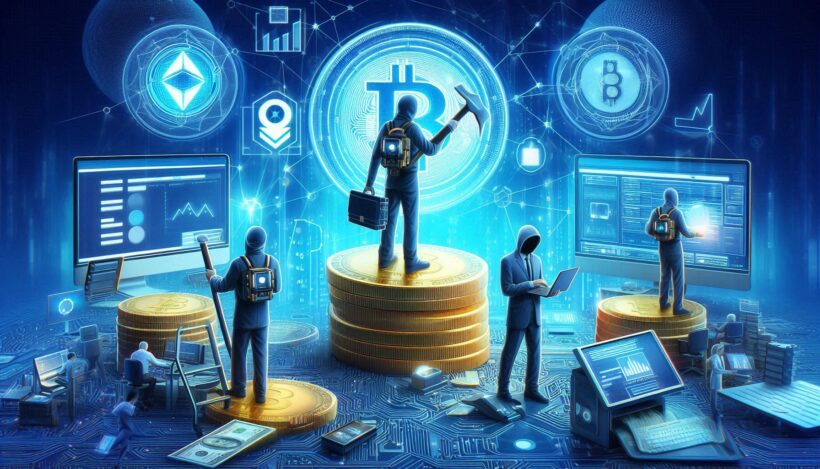Table of Contents
Decentralized Finance, or DeFi, is an emerging trend in the financial sector that aims to build a more transparent, accessible, and secure financial system. Leveraging blockchain technology, DeFi allows for financial transactions and services without traditional banks or centralized institutions. This article will explore the key aspects of DeFi, its benefits, and how it is poised to transform the world of finance.
1. What is Decentralized Finance (DeFi)?
DeFi is a collection of financial applications and services that operate on decentralized blockchain networks, primarily Ethereum. Unlike traditional financial systems, which rely on intermediaries like banks and brokers, DeFi enables peer-to-peer financial interactions, offering services such as lending, borrowing, and trading directly between users.
Core Characteristics:
- Transparency: All transactions are recorded on a public ledger, making DeFi highly transparent.
- Decentralization: No central authority controls the system; instead, smart contracts automate transactions.
- Accessibility: Users only need an internet connection and a digital wallet to access DeFi services, enabling global reach.
2. How DeFi Works
DeFi platforms use smart contracts—self-executing contracts with terms directly written into code—to perform transactions automatically. These smart contracts operate on blockchain networks, eliminating the need for intermediaries and reducing costs.
Key Components:
- Smart Contracts: These are the backbone of DeFi, automating financial transactions and reducing human error.
- Decentralized Applications (dApps): dApps are built on blockchain platforms and offer various financial services like lending, borrowing, and trading.
- Tokenization: Assets are represented by tokens on the blockchain, making it easier to transfer and trade.
3. Popular DeFi Applications and Protocols
DeFi offers a range of financial products similar to those in traditional finance but with greater accessibility and transparency.
Key Applications:
- Lending and Borrowing: Platforms like Aave and Compound allow users to lend or borrow cryptocurrencies, earning interest or accessing funds without a traditional credit check.
- Decentralized Exchanges (DEXs): DEXs like Uniswap and SushiSwap enable users to trade cryptocurrencies directly with one another without an intermediary.
- Stablecoins: These are digital assets pegged to stable currencies like the U.S. dollar, reducing volatility in transactions and serving as a bridge to traditional finance.
4. Advantages of Decentralized Finance
DeFi is revolutionizing financial services by creating more open, efficient, and inclusive systems. The main advantages of DeFi include greater transparency, reduced costs, and enhanced security.
Benefits:
- Cost Reduction: By removing intermediaries, DeFi reduces fees associated with financial services.
- Security and Control: Users have control over their assets, reducing reliance on centralized entities.
- Financial Inclusion: DeFi opens financial services to anyone with internet access, reaching underserved regions and populations.
5. Challenges Facing DeFi
Despite its promise, DeFi still faces significant hurdles. Regulatory concerns, security vulnerabilities, and user complexity are among the challenges that DeFi must address to achieve broader adoption.
Key Challenges:
- Regulatory Uncertainty: Governments are still developing frameworks for regulating DeFi, creating uncertainty.
- Security Risks: Hacks and smart contract vulnerabilities pose a risk to users’ funds.
- Usability Issues: The technology can be complex for newcomers, requiring improvements in user interfaces and educational resources.
Conclusion
DeFi represents a transformative shift in the financial world, offering a decentralized, accessible, and transparent alternative to traditional finance. While challenges remain, the potential benefits of a system free from centralized control and open to all users are significant. As DeFi continues to grow, it has the potential to democratize finance, offering new opportunities for individuals and businesses alike in a more inclusive digital economy.






